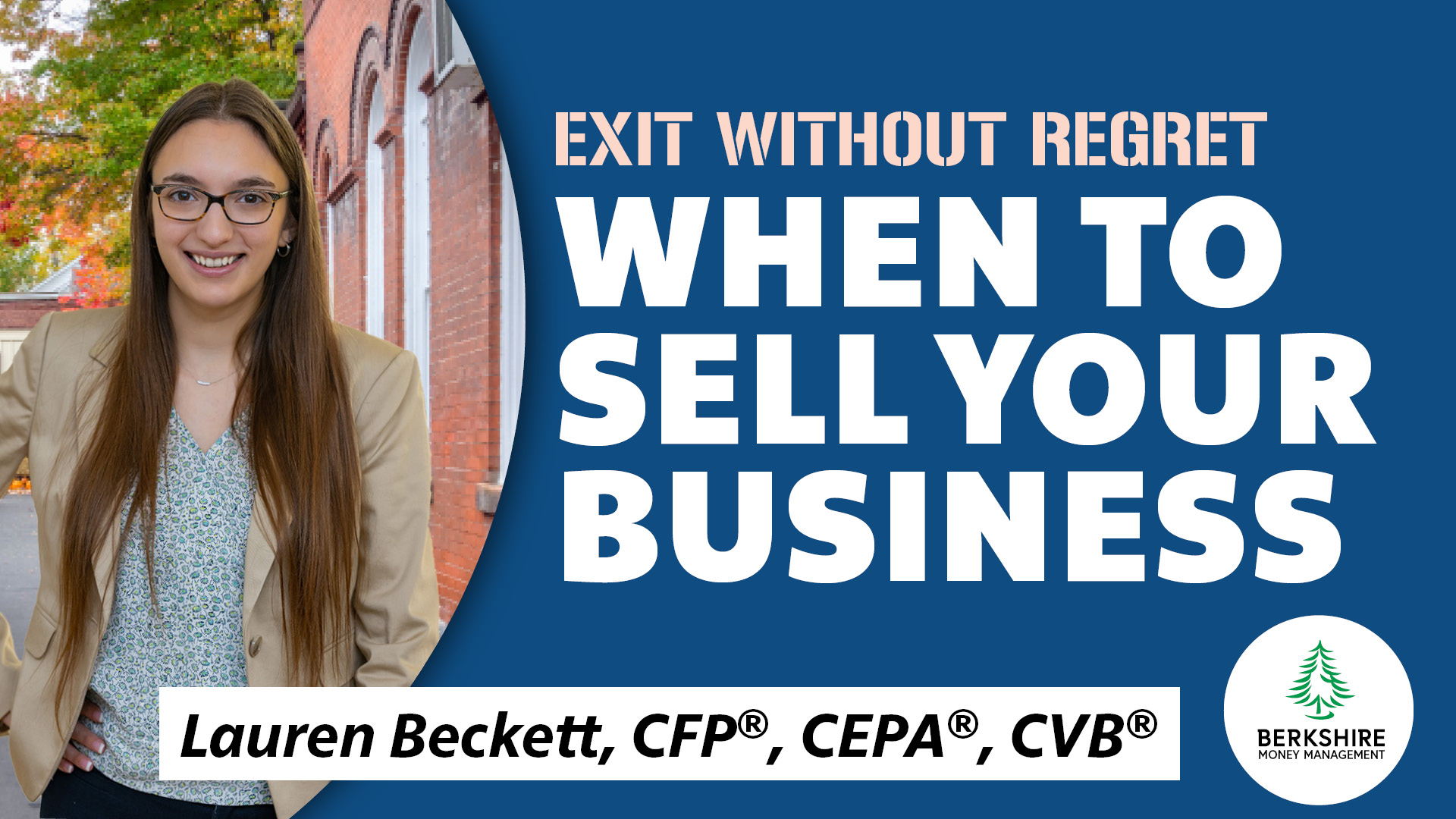Few Businesses Sell

The goal for many business owners is to sell their company and retire with confidence. If that wasn’t a consideration of yours last year, it might be today.
According to a Baker Tilly survey, as a result of the pandemic, 31 percent of business owners will accelerate their sale to a nonfamily buyer, and 24 percent will accelerate ownership to the next generation.
Some readers probably won’t quickly sell their company, because they have failed to take the critical steps necessary to make it transferable. Selling isn’t enough — you need to attain maximum value first. Surveys by the Exit Planning Institute reveal that it is common for business owners to have 80 percent, even 90 percent, of their net worth tied up in their company. If you want to retire with confidence, getting top dollar when you sell is essential.
Others might balk at the notion that they won’t get maximum value because, after all, companies in their sector are selling at high multiples. However, if that’s true, it’s because there is a lack of profitable businesses in your industry. That scarcity of supply drives up prices for the firms that can sell. It doesn’t mean that your business will be one of those that sells at a high price.
You take calls every month from people wanting to acquire your company. Respectfully, what do you want them to say, “Give me your financials and let me interview your management so I can decide if you’re worth buying?” No. They expect you to be the frog they’ve got to kiss before they find their prince. They’ve got to smooth-talk you and tell you that you’re royalty before they get to lay a smacker on you. Some owners may not be as charming as they think they are.
But that’s OK. Success starts with understanding the landscape.
One of the best ways to gauge the attractiveness of your business is to look at it through the eyes of a buyer. If you do that, you’ll have the edge over your competition, who may not be able to sell at all.
Data from BizBuySell, the online business brokerage company, tells us that only about 20 percent, or 1 in 5, of small businesses that go to market will sell. It is an alarming statistic for business owners hoping to cash in on their life’s work. Most of the time, their efforts will lead nowhere.
Why Do Most Small Businesses Fail to Sell?
Why do most small businesses fail to sell? One reason is that the owner often does not have a realistic sense of how much the business is worth. Often, they rely on industry rules of thumb to self-assess their company’s valuation, which is almost always inflated due to owner bias.
After receiving a professional valuation, the owner is indignant. “It must be worth more,” she’ll exclaim. Nonetheless, the owner enters the market with high expectations, insisting on a price that drives many buyers away. The financials and the supporting documentation do not support the owner’s asking price.
Buyers may show initial interest, but they are going to look at things differently than you do. They want to see a professional valuation, audited financial statements, trend reports, KPIs (key performance indicators), and more. Even if the seller is willing to bring the price down to something more reasonable to an acquirer, she may be unwilling to budge on the terms, and such intransigence scuttles many deals.
At this point, the seller is intent on retiring and often unwilling to go back and institute the improvements that would build real value. The business may continue awhile, but eventually, it fades away, and with it go many dreams that might have been.
It is interesting to note that the larger the business, the more likely it is to find a buyer. However, even for businesses valued at $2 million to $6 million, only 1 in 3 sells. Larger firms are often those that took more of the right steps to become attractive and transferable, which is why they grew. The owners did not wait until the eve of retirement to figure out what they should be doing. It is more likely that you can sell your business if you prepare, but if the odds of selling your business are still only 1 in 3, then we’ve got to do more to improve your chances.
You don’t need to be interested in selling your business to get it ready for sale. After all, a sellable business is more valuable to potential buyers because it is better poised for growth, is more stable, is better protected against competition, and generates more cash flow. You can benefit from transforming your business to be prepared for sale, even if that is not your intention right now.
I know many business owners who say things like, “I reinvest all my profits back into the business.” Do you know what that means? It means you don’t have any profits! Not only does your company need to produce desirable cash flow, but you want to be able to prove, through documentation, that a buyer can duplicate those results. That documentation is not limited to financial statements — you need to turn your blueprint into a pitch book.
If you delay, you’re going to get stuck working a few more years than you want to. Alternatively, you’ll sell and possibly not get enough to be confident in your retirement.
Allen Harris is the owner of Berkshire Money Management in Dalton, managing investments of more than $500 million. Allen’s forecasts and opinions are purely his own. None of the information presented here should be construed as an endorsement of BMM or a solicitation to become a client of BMM. Direct inquiries to Allen at Aharris@BerkshireMM.com.
This column originally appeared in the Berkshire Eagle on October 16, 2020.
Allen is the CEO and Chief Investment Officer at Berkshire Money Management and the author of Don’t Run Out of Money in Retirement: How to Increase Income, Reduce Taxes, and Keep More of What is Yours. Over the years, he has helped hundreds of families achieve their “why” in good times and bad.
As a Certified Exit Planning Advisor, Certified Value Builder, Certified Value Growth Advisor, and Certified Business Valuation Specialist, Allen guides business owners through the process of growing and selling or transferring their established companies. Allen writes about business strategy in the Berkshire Eagle and at 10001hours.com.








